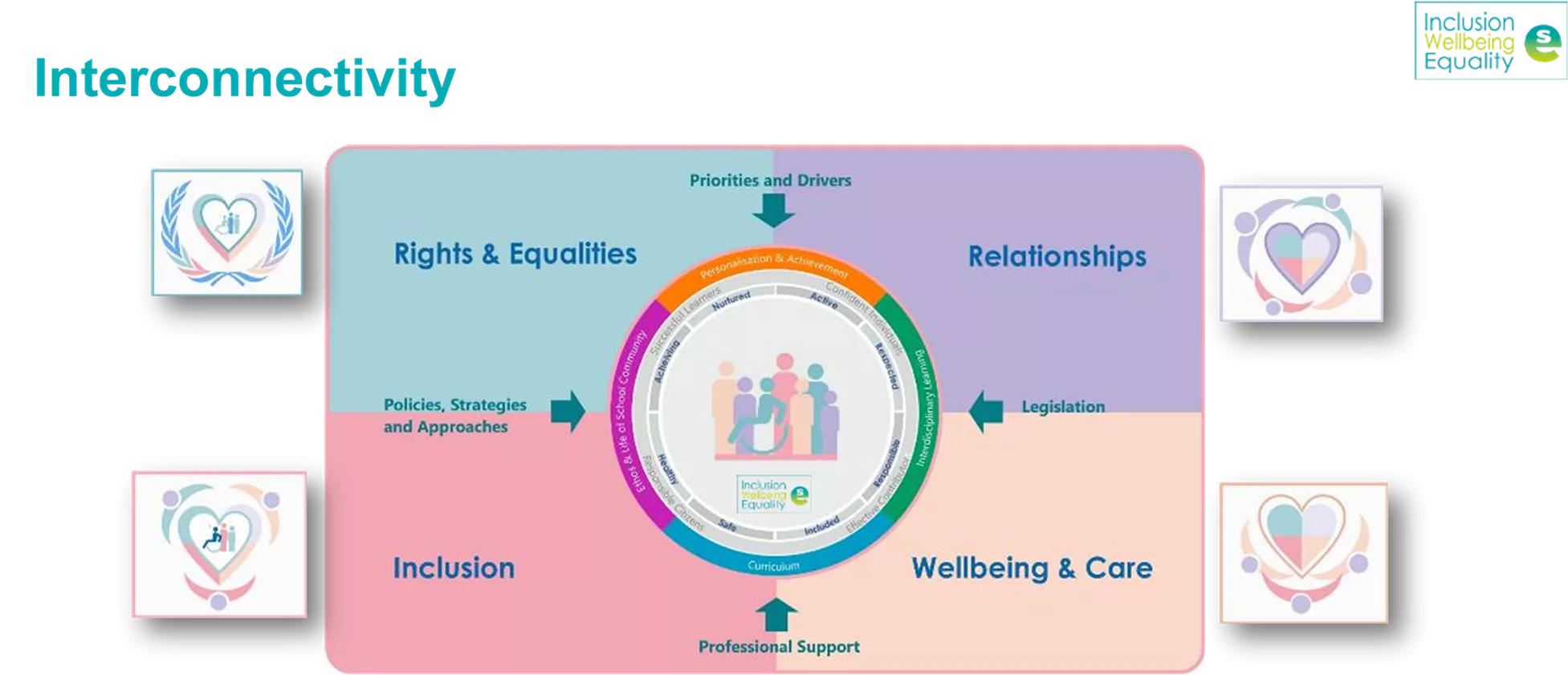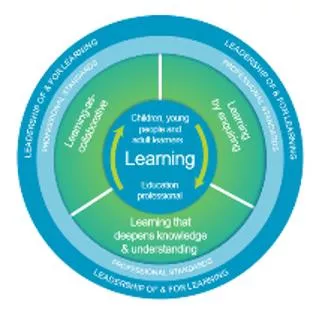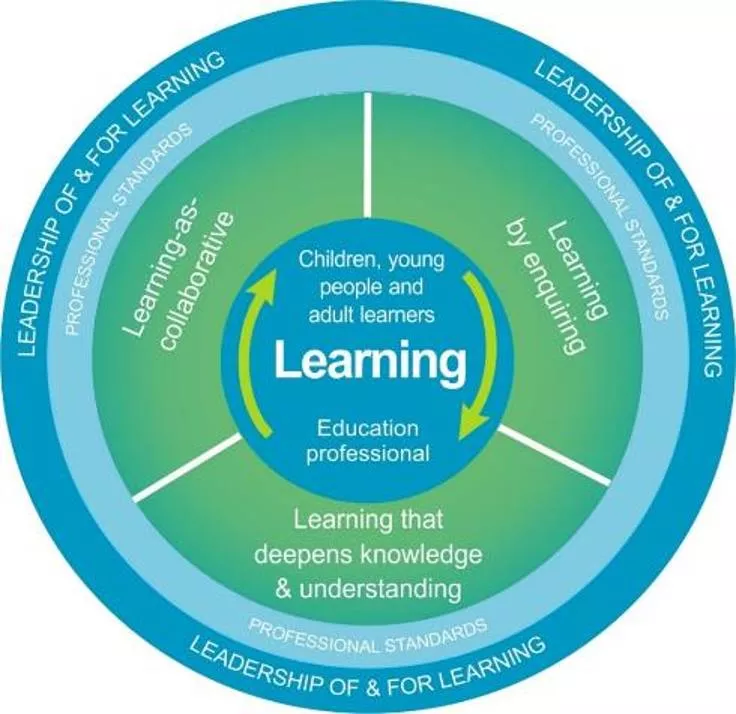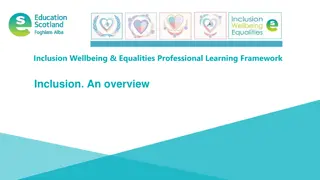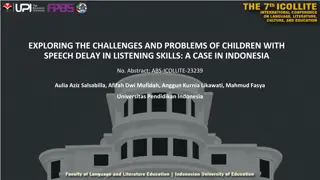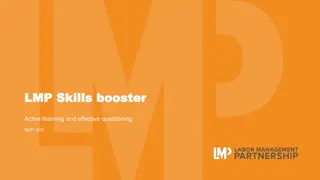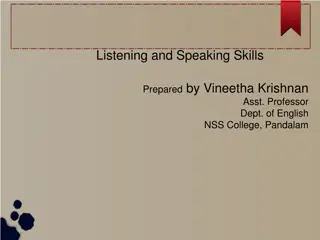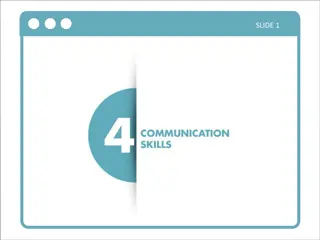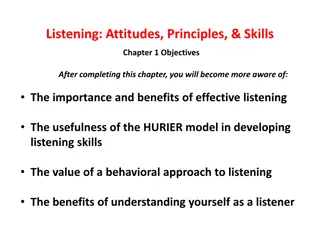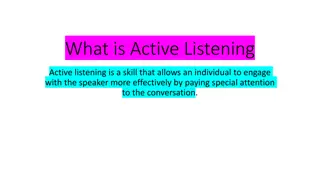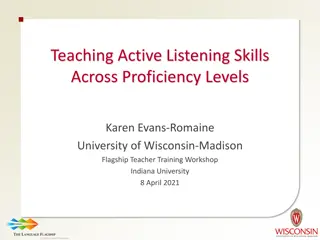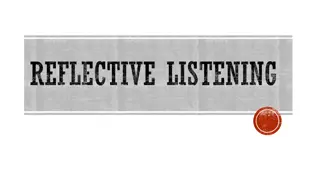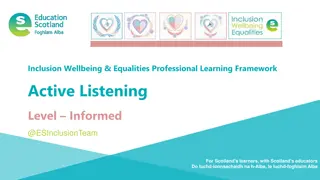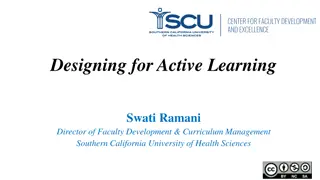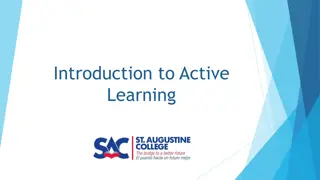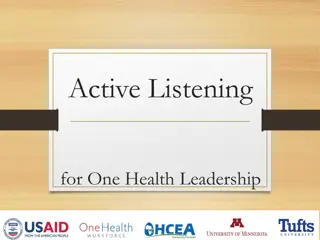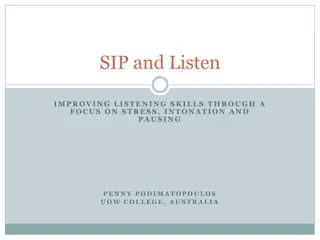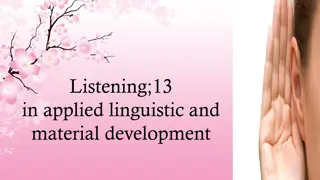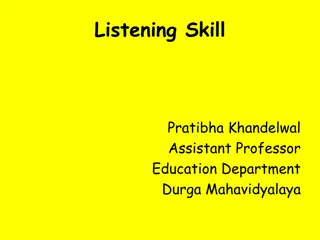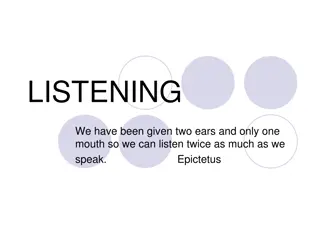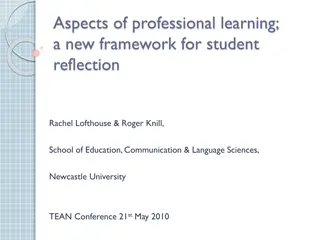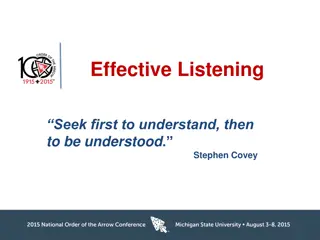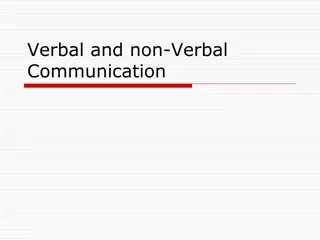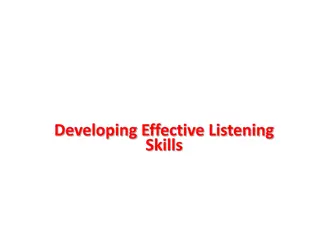Enhancing Professional Learning Through Active Listening Framework
Explore a comprehensive professional learning resource focusing on inclusion, wellbeing, and equalities for Scotland's educators and learners. The resource includes slides on active listening, interconnectivity, and guidance on how to utilize the material effectively. Dive into the National Model for Professional Learning to deepen knowledge and reflection on active listening skills. Engage in sessions that emphasize the importance of active listening and building trusting relationships. Uncover the significance of active listening through reflection and exploring next steps in learning.
Download Presentation

Please find below an Image/Link to download the presentation.
The content on the website is provided AS IS for your information and personal use only. It may not be sold, licensed, or shared on other websites without obtaining consent from the author. Download presentation by click this link. If you encounter any issues during the download, it is possible that the publisher has removed the file from their server.
E N D
Presentation Transcript
Inclusion Wellbeing & Equalities Professional Learning Framework Active Listening Level Informed @ESInclusionTeam For Scotland's learners, with Scotland's educators Do luchd-ionnsachaidh na h-Alba, le luchd-foghlaim Alba For Scotland's learners, with Scotland's educators Do luchd-ionnsachaidh na h-Alba, le luchd-foghlaim Alba
Interconnectivity For Scotland's learners, with Scotland's educators Do luchd-ionnsachaidh na h-Alba, le luchd-foghlaim Alba
Pause for Thought How to use this resource These slides can be used to facilitate professional learning in a group or whole setting, or as a self-directed learning activity as an individual. Facilitation notes are included at the bottom of each slide Please do not remove or change any of the slides included. Facilitators are welcome to add slides or activities relevant to your own setting, to support discussion and exploration of the topic. Facilitators will know their participants needs best. Anyone who works in an educational setting can be a facilitator and use these slides. For reflection or discussion activities, it is important to establish a safe space which encourages respect and honesty to ensure that everyone is able to participate. For Scotland's learners, with Scotland's educators Do luchd-ionnsachaidh na h-Alba, le luchd-foghlaim Alba
National Model for Professional Learning This professional learning resource will support you to deepen your knowledge and understanding. You will have the opportunity to consider how to take this learning forward on your own and with others. The National Model of Professional Learning (education.gov.scot) For Scotland's learners, with Scotland's educators Do luchd-ionnsachaidh na h-Alba, le luchd-foghlaim Alba
Pause for Thought Welcome This session provides an opportunity to: To understand why active listening is important To learn more about active listening skills to build trusting relationships and support regulation To reflect on our own practice and explore our next steps in learning For Scotland's learners, with Scotland's educators Do luchd-ionnsachaidh na h-Alba, le luchd-foghlaim Alba
Listening A skill for life! 1 min 40 sec If viewing as a PDF please click this link to watch the film https://youtu.be/h5sMwHk63OQ?t=2 How well do you listen? Video by www.scouts.org.uk For Scotland's learners, with Scotland's educators Do luchd-ionnsachaidh na h-Alba, le luchd-foghlaim Alba
What is Active Listening? Active listening is a communication skill that involves going beyond simply hearing the words that another person speaks but also seeking to understand the meaning and intent behind them. It requires being an active participant in the communication process. (Verywellmind) It includes: the non-verbal and verbal messages that a listener sends back to a speaker to show them that they are listening the ability to reflect back to the speaker what has been received not just the words but an understanding of what has been said For Scotland's learners, with Scotland's educators Do luchd-ionnsachaidh na h-Alba, le luchd-foghlaim Alba
Why is active listening important? It is vital for effective communication It forces us to slow down communication (providing time to calm if needed) It helps prevent miscommunication and misunderstandings It can reduce stress and frustration It can take the heat out of situations that has, or could, escalate into conflict It helps the person speaking feel seen, heard, valued, and validated It fosters collaboration It breaks down defensiveness and encourages connection For Scotland's learners, with Scotland's educators Do luchd-ionnsachaidh na h-Alba, le luchd-foghlaim Alba
Fundamental elements of active listening Giving your full attention and being fully present in the conversation Being patient Withholding judgment and advice The skills explored in the following slides will be ineffective if these fundamental elements are not obvious to the speaker For Scotland's learners, with Scotland's educators Do luchd-ionnsachaidh na h-Alba, le luchd-foghlaim Alba
Non-Verbal and Verbal strategies for Listening and Responding For Scotland's learners, with Scotland's educators Do luchd-ionnsachaidh na h-Alba, le luchd-foghlaim Alba
What to look for? (non-verbal cues) Their facial expressions, tone of voice, and gestures can tell you more about how they are feeling than the words they use: are they smiling, are their arms crossed defensively, or are they rubbing their eyes as if they're tired or upset, or are their feet pointed towards the door is their voice subdued or upbeat, high pitched or flat, quick or slow? Body language doesn t lie so pay attention to what they are saying with their non-verbal cues For Scotland's learners, with Scotland's educators Do luchd-ionnsachaidh na h-Alba, le luchd-foghlaim Alba
What to do? Use eye contact and body language to connect: Eye contact is important in conveying your interest but it should be used wisely: Too much eye contact can be intimidating so remember to blink and break eye contact When looking away, look to the side or up, looking down can look like disinterest Keep your body language open Avoid crossed arms or legs, this can come across as being closed or defensive Leaning forward, tilting your head, or resting your head on your hand can all convey your interest Show empathy and that you re listening through Facial expressions, smiling, nodding your head, and making noises like yes , uh huh For Scotland's learners, with Scotland's educators Do luchd-ionnsachaidh na h-Alba, le luchd-foghlaim Alba
What not to do? Don t interrupt Letting them speak will make it easier for you to understand their message Interruptions can cause them to stop speaking or sidetrack the conversation Don t react physically, in a way that may convey judgement They ll be attuned to your body language and facial expressions Don t jump to conclusions Don t assume that you know what s going to be said next Don t start planning what you are going to say next Don t look at your watch or fidget For Scotland's learners, with Scotland's educators Do luchd-ionnsachaidh na h-Alba, le luchd-foghlaim Alba
What to say? Active listening also includes replying verbally to the speaker to convey to them that you have listened to them and understood what they have said The following 2 slides provide some strategies to try when responding verbally: Each strategy includes: the purpose of the strategy what the strategy involves a brief example For Scotland's learners, with Scotland's educators Do luchd-ionnsachaidh na h-Alba, le luchd-foghlaim Alba
Verbal strategies to try Ask questions Focus on emotions Reflect back Purpose To get more information Shows you ve understood how they ve felt Helps them think about their feelings and more able to name them in the future Conveys interest Shows you are paying attention Encourages them to keep talking Restate the information they ve told you in your own words they know you have listened and understood what they ve said Reflect back accurately their feelings and emotions To achieve it Ask closed and open questions So you spoke to Mr A at the end of your last class about the homework and then you had to run to get to your next class on time So you were angry when you were stopped in the corridor by Mrs C Example Can you tell me what happened? What did you do, or say, when Mrs C stopped you in the corridor? For Scotland's learners, with Scotland's educators Do luchd-ionnsachaidh na h-Alba, le luchd-foghlaim Alba
Verbal strategies to try Encourage Summarise Clarify Purpose Shows interest Encourages them to keep talking, expand on their explanation or story Review all that s been said Pulls together key points Set the scene for a further discussion potentially a restorative one Clarify what s been said Help them see other points of view Ask more about anything that is vague, unclear, or is inaccurate Restate inaccuracies, misconceptions, and explore further Use verbal and non-verbal prompts Restate main themes including feelings and actions To achieve it Remind me, was that before or after Mrs C stopped you Can I just check who said that? Did you mean .or .? Verbally use expressions such as: Uh huh, yes, tell me more about that, and then what, ... Non-verbally: nod, use eye contact, lean forward, So let me just check that I ve got everything and that I ve got it right . Example For Scotland's learners, with Scotland's educators Do luchd-ionnsachaidh na h-Alba, le luchd-foghlaim Alba
Practice Old habits are hard to break Becoming an active listener requires a conscious effort Active listening is for LIFE not just for education so you can practice anywhere (at work, at home, elsewhere) and with anyone (your partner, children, colleagues, or friends)! For Scotland's learners, with Scotland's educators Do luchd-ionnsachaidh na h-Alba, le luchd-foghlaim Alba
2 min 58 sec If viewing as a PDF please click this link to watch the film https://www.youtube.com/wa tch?v=4VOubVB4CTU Video from Gordon Training International For Scotland's learners, with Scotland's educators Do luchd-ionnsachaidh na h-Alba, le luchd-foghlaim Alba
Reflection Time Based on what you ve learned about active listening, in the film: What does Raymond do well? What could he improve on? For Scotland's learners, with Scotland's educators Do luchd-ionnsachaidh na h-Alba, le luchd-foghlaim Alba
Remember: when we actively listen - we don t: we do: check our phone, emails, . give the speaker our full attention daydream, look out the window, . show them we are interested interrupt show that we are open to what is being said jump to conclusions show empathy focus on what we are going to say next instead of listening show patience For Scotland's learners, with Scotland's educators Do luchd-ionnsachaidh na h-Alba, le luchd-foghlaim Alba
Resources and Information to help For Scotland's learners, with Scotland's educators Do luchd-ionnsachaidh na h-Alba, le luchd-foghlaim Alba
Reflection From what you have learned so far, think about: How has this made you feel? What has this made you think about? What one action would you like to take forward? How can you link what you plan to do with others in your setting? How you will know that this learning has made a difference? For Scotland's learners, with Scotland's educators Do luchd-ionnsachaidh na h-Alba, le luchd-foghlaim Alba
We value your feedback From now until March 2024 we will be taking feedback on these resources so that we can make changes in advance of a formal launch of the Professional Learning Framework in June 2024 Your feedback could help us improve this resource Please complete this short form, using the link or QR code, to let us know what you thought of it and any suggestions you have on how it could be improved LINK: https://forms.office.com/e/b5PCpJJJ3P For Scotland's learners, with Scotland's educators Do luchd-ionnsachaidh na h-Alba, le luchd-foghlaim Alba
Education Scotland Denholm House Almondvale Business Park Almondvale Way Livingston EH54 6GA T +44 (0)131 244 5000 E enquiries@educationscotland.gsi.gov.uk For Scotland's learners, with Scotland's educators Do luchd-ionnsachaidh na h-Alba, le luchd-foghlaim Alba For Scotland's learners, with Scotland's educators Do luchd-ionnsachaidh na h-Alba, le luchd-foghlaim Alba
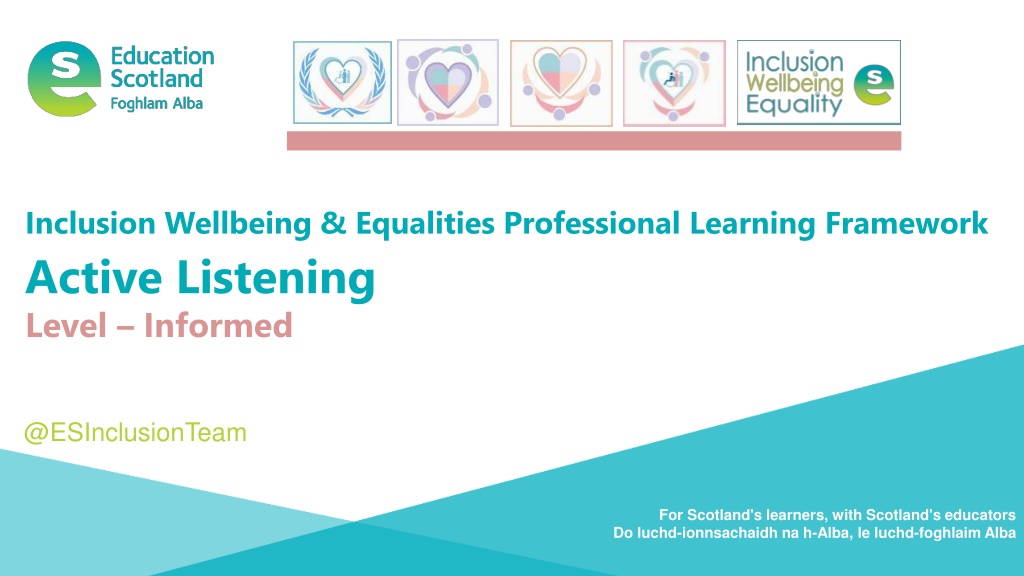
 undefined
undefined






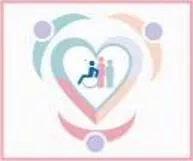


 undefined
undefined

